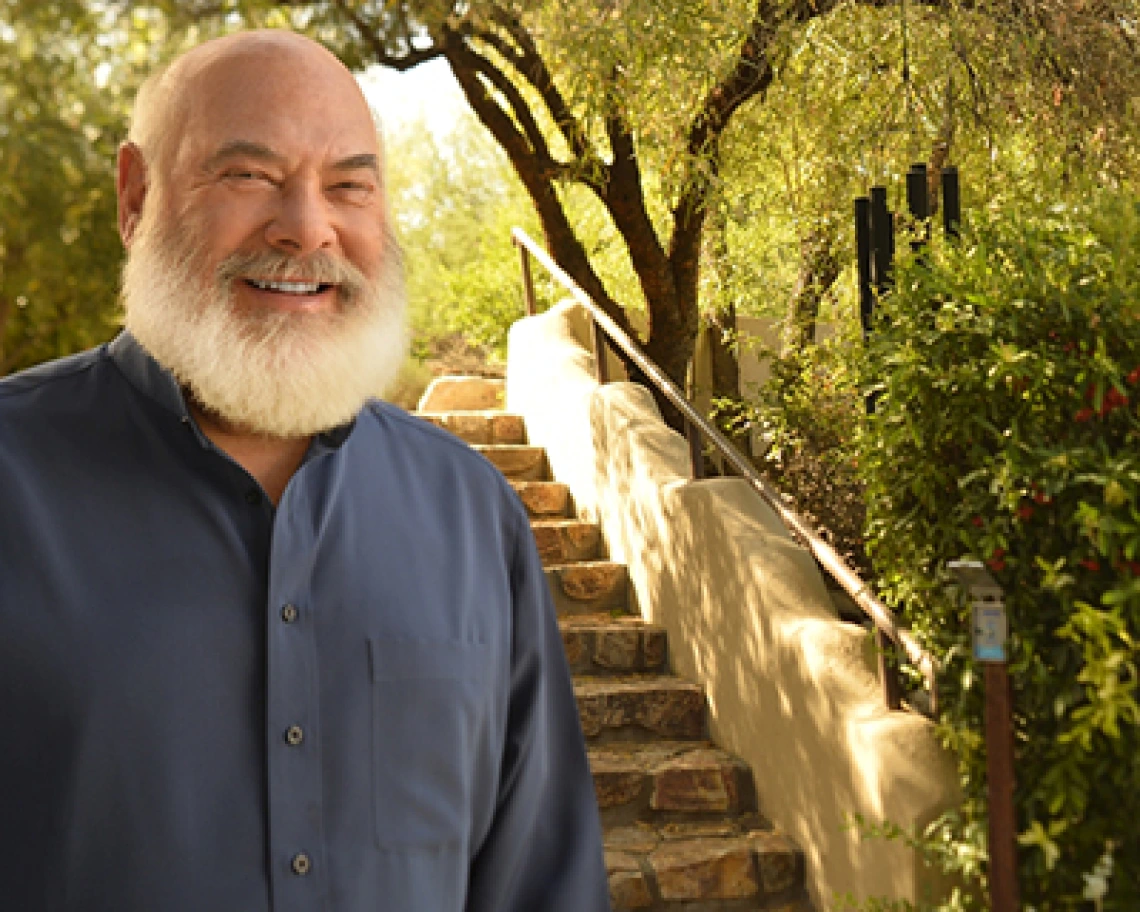Integrative Medicine Approaches May Combat COVID-19
The Andrew Weil Center for Integrative Medicine at the University of Arizona College of Medicine – Tucson offers several strategies to enhance the immune system and reduce the risk of viral infection.

TUCSON, Ariz. – During this time of great societal stress, there is a high level of interest in evidence-based integrative strategies to augment public health measures to prevent COVID-19 virus infection and associated pneumonia.

Andrew Weil, MD, founder of integrative medicine program at the University of Arizona and inaugural director of the Arizona Andrew Weil Center for Integrative Medicine
Although no integrative measures have been validated in human trials specifically for COVID-19, this is an opportune time to be proactive, said Dr. Alschuler. These supplemental considerations should be used in addition to the current recommendations that emphasize regular hand washing, physical distancing and avoiding non-essential travel.
Reducing Risk:
- Adequate sleep: Shorter sleep duration increases the risk of infectious illness. Adequate sleep also ensures the secretion of melatonin, a molecule that may play a role in reducing coronavirus virulence (please see below).
- Stress management: Psychological stress disrupts immune regulation; various mindfulness techniques, such as meditation, breathing exercises and guided imagery, reduce stress.
- Zinc: Coronaviruses appear susceptible to the viral inhibitory actions of zinc. Zinc may prevent coronavirus entry into cells and appears to reduce coronavirus virulence. Typical daily dosing of zinc is 15-30 milligrams daily, with lozenges potentially providing direct protective effects in the upper-respiratory tract.
- Vegetables and fruits: Vegetables and fruits provide a repository of flavonoids, considered a cornerstone of an anti-inflammatory diet. At least five to seven servings of vegetables and two to three servings of fruits are recommended daily. Some foods and/or dietary supplements to consider include: tomatoes, apples, onions, oranges, nuts, parsley, celery, berries, licorice and Chinese skullcap.
- Vitamin C: Clinical trials have found that vitamin C shortens the frequency, duration and severity of the common cold and the incidence of pneumonia. The typical daily dosing of vitamin C ranges from 500-3,000 mg daily, with even higher doses utilized during times of acute infection.
- Melatonin: Melatonin has been shown to be anti-inflammatory; it also reduces oxidative lung injury and inflammatory cell recruitment during viral infections.
- Curcumin: Curcumin, a key component of turmeric, has anti-inflammatory actions and antiviral effects against a variety of similar viruses.

Victoria Maizes, MD, executive director of the Andrew Weil Center for Integrative Medicine and the Andrew Weil Endowed Chair in Integrative Medicine at the University of Arizona
- Sambucus nigra (Elderberry)
- Polysaccharide extracts from medicinal mushrooms
- Echinacea angustifolia and E. purpurea
- Larch arabinogalactan
- Vitamin D
Other commonly used natural immune-stimulating and antiviral agents are available, several of which may work to restore immune balance, or homeostasis. These likely are safe to use both prior to and during COVID-19 virus infection. Whether these agents mitigate the symptoms or severity of COVID-19 is unknown and, therefore, the benefit of these agents during COVID-19 infection is unknown. Recommendations include:
- Allium sativum (garlic)
- Quercetin
- Astragalus membranaceus
- Full mycelium mushroom extracts
- Mentha piperita (peppermint)
- Andrographis paniculata
- Zinc
- Vitamin A
- Vitamin C
In response to the coronavirus pandemic, the Andrew Weil Center for Integrative Medicine is offering two online integrative health courses free of charge from now until May 1:
- An Introduction to Contemplative Care: This course explores an approach to caregiving that incorporates mindfulness practice, compassionate action and moment-to-moment awareness of the relationships around you. The first section features mediations to help you, your friends and family members cope with stress. Developed with the co-founders of the New York Zen Center for Contemplative Care, this course may offer just what you crave in trying times.
- Nutrition Above the Neck: Opportunities are available to alleviate stress and improve mental well-being in the face of the coronavirus challenges. This video lecture course explores the role of nutrients in mental health. Learn practical steps to reduce your anxiety through food and supplements.
Related link: https://awcim.arizona.edu/covid_19.html
For the latest on the University of Arizona response to the novel coronavirus, visit the university's COVID-19 webpage.
###
NOTE: Photos provided upon request.
About the Andrew Weil Center for Integrative Medicine
The Andrew Weil Center for Integrative Medicine (AWCIM) at the University of Arizona is leading the transformation of health care by creating, educating and actively supporting a community that embodies the philosophy and practice of healing-oriented medicine. AWCIM is internationally recognized for its evidence-based clinical practice, innovative educational programs and research that substantiates the field of integrative medicine and influences public policy. Since its creation in 1994, AWCIM’s vision of making integrative care available to all is being realized worldwide: AWCIM graduates are now guiding more than 1 million patients to take a greater role in their health and healing. For more information: awcim.arizona.edu (Follow us: Facebook | Twitter).
About the University of Arizona Health Sciences
The University of Arizona Health Sciences is the statewide leader in biomedical research and health professions training. UArizona Health Sciences includes the Colleges of Medicine (Tucson and Phoenix), Nursing, Pharmacy, and the Mel and Enid Zuckerman College of Public Health, with main campus locations in Tucson and the Phoenix Biomedical Campus in downtown Phoenix. From these vantage points, Health Sciences reaches across the state of Arizona, the greater Southwest and around the world to provide next-generation education, research and outreach. A major economic engine, Health Sciences employs nearly 5,000 people, has approximately 4,000 students and 900 faculty members, and garners $200 million in research grants and contracts annually. For more information: uahs.arizona.edu (Follow us: Facebook | Twitter | YouTube | LinkedIn | Instagram).

